Attending the G7 in Kananaskis and kicking off student projects through the Algorithmic Governance Foundation.
G7 Kananaskis Summit
Travelled back to Canada this month for the G7 Summit in Kananaskis. I wasn’t expecting to go initially; I was told by my team that the Summit was being unusually restrictive for issuing participant accreditation and that I was almost certainly not going to get in. With this in mind, I planned anyway to go back to Toronto to see friends and visit family. In the off chance I managed to get accreditation, I could easily fly to Alberta for the Summit. Well, it so happened that I managed to be one of the few to get in. This meant hurriedly booking expensive last-minute flights (literally a few days before the Summit), and disappointing friends by cancelling plans. It was not a decision I wanted to make, but as lead author for two Think7 policy papers each with multiple expert co-authors from around the world, this would be my only chance to promote the work where it was intended to have the most influence.
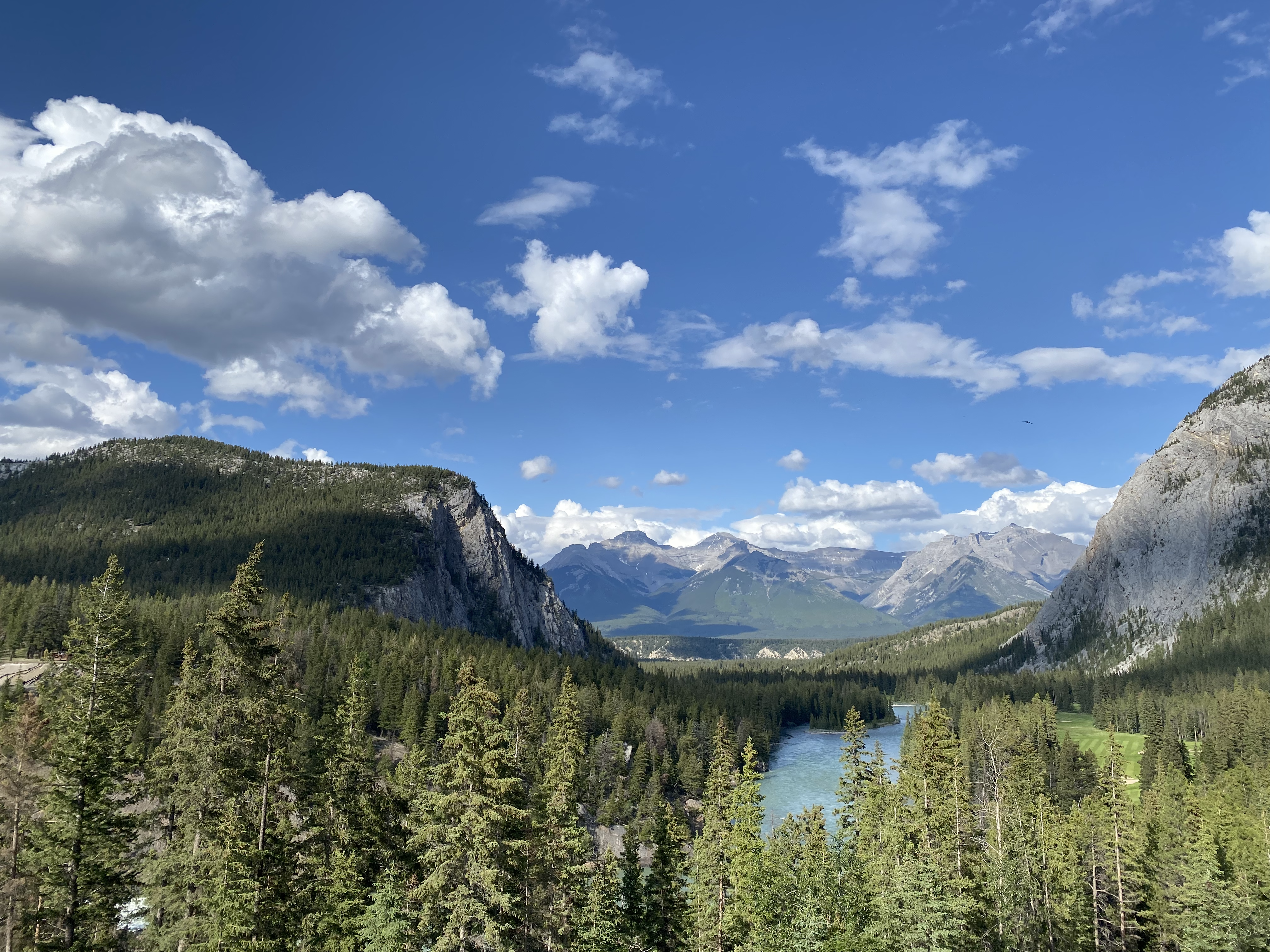 Beautiful Alberta, where the Summit was held.
Beautiful Alberta, where the Summit was held.
So, I made my choice and ditched my friends for the Summit. Even if they are upset with me, I will be able to see them again – I do not think I will get another opportunity like this again and have been working on the policy papers for months.
The Summit week started off strong, with my research group co-hosting a pre-summit panel discussion at the University of Calgary, attended by several former Canadian Prime Ministers (Chrétien and Clark), as well as the current Premier of Alberta, Danielle Smith. The conference attendees instantly revealed the tone of the Summit this year: the focus is on economic growth and not much else. Though this might be expected from the oil capital of Canada, not one word was spoken on the environment or climate change, with the Premier even going as far as to say that Alberta likely wasn’t going to meet 2030 clean energy targets, so she saw no point in trying. I even overheard one attendee unironically quote Michael Steele.
Regardless, I did my part and asked a ton of questions. Like, probably 50% of all questions asked (which made me popular with the speakers in the break after the conference hehe).
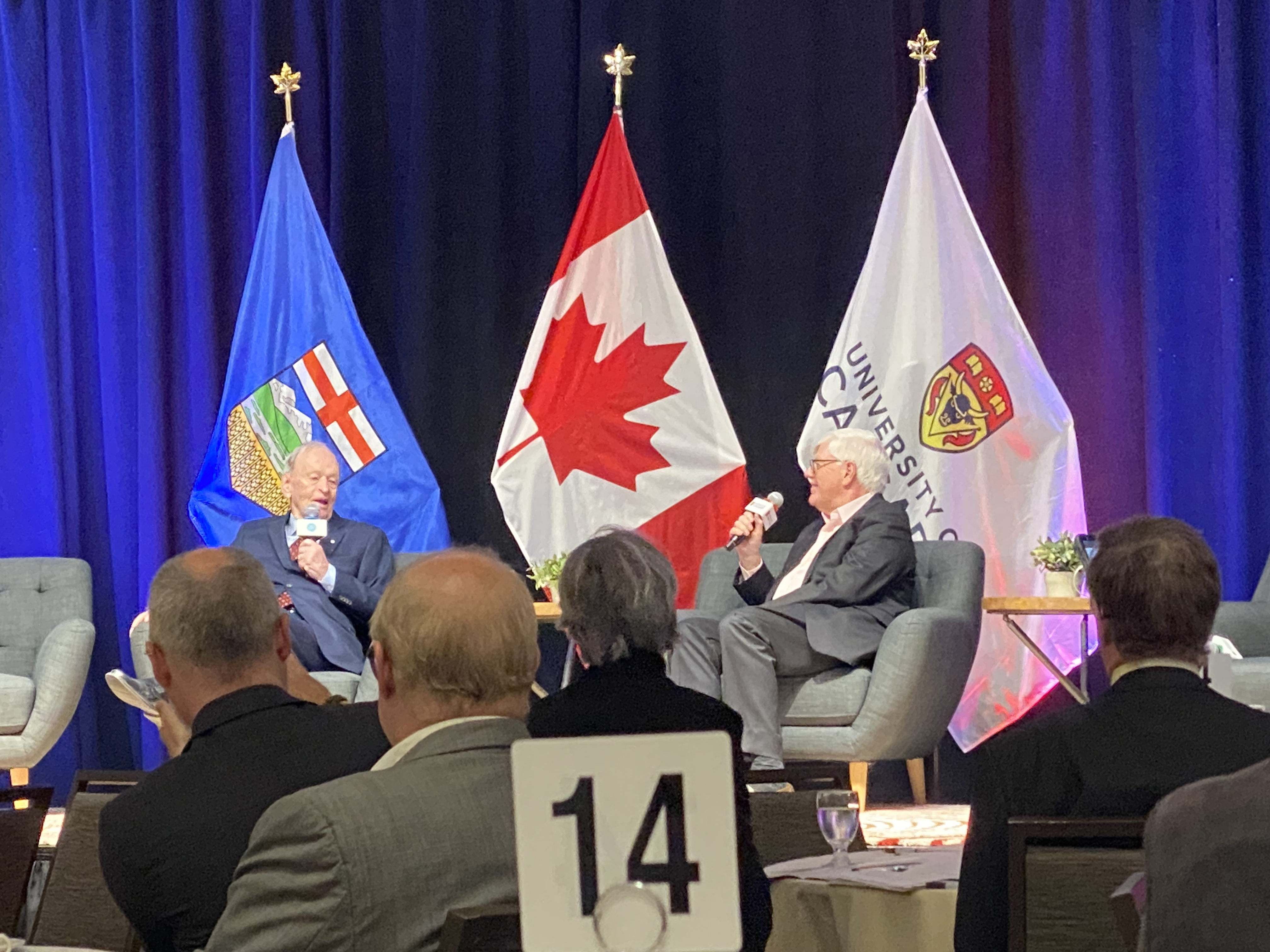 Despite being 91, Chrétien was a witty delight. He steered the conversation away from fluff and criticised the interviewer for focussing on Trump’s response to the “No Kings” protests as a way of distracting criticism away from the much more sinister “Big Beautiful Bill”.
Despite being 91, Chrétien was a witty delight. He steered the conversation away from fluff and criticised the interviewer for focussing on Trump’s response to the “No Kings” protests as a way of distracting criticism away from the much more sinister “Big Beautiful Bill”.
The G7 Leader’s Summit itself was no different. No word on the environment, no money moved whatsoever towards development (breaking away from almost every previous G7), and no comment on unabashed ethnic cleaning being carried out by key Western allies. To cap it all off, Trump left the Summit less than 24 hours after arriving to bomb Iran, completely derailing planned talks for the second day and diverting valuable airtime away from collective action problems to speculation as to whether the United States was going to escalate the situation in the Middle East.
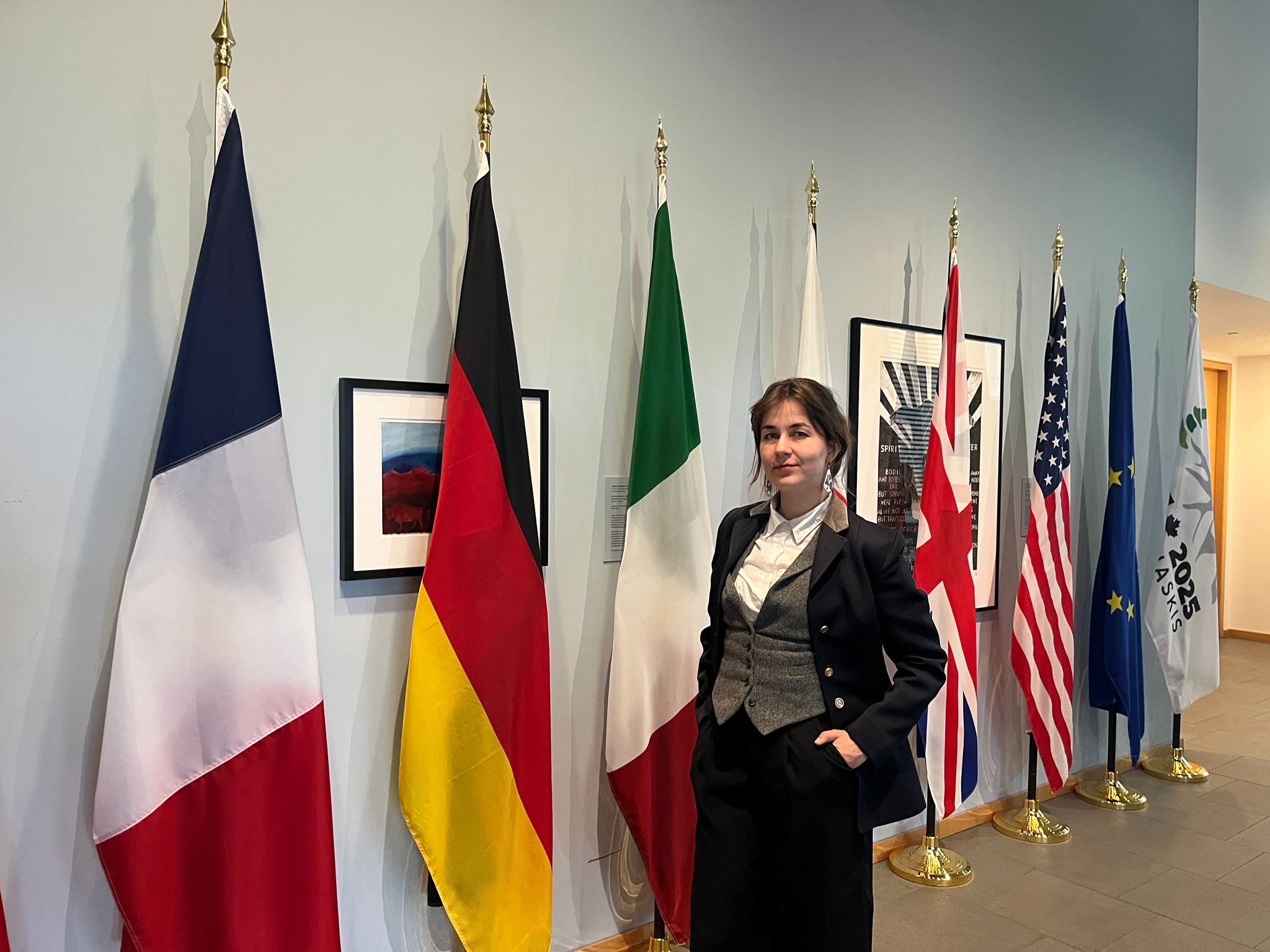
There was also a large amount of airtime dedicated to quantum computing, which was surprising given the early stages of the technology and lack of evidence that future applications will be profitable (even if they are technically possible). In all, it seems to me that leaders were banking too hard on quantum computing as “the next AI” (to use their phrasing) and itching to gain a market advantage on potential future applications. This to me feels like a mistake. The potential benefits of quantum simulations for materials and drugs discovery are so high that it seems too risky to invest everything into for-profit actors who would abandon the technology if it fails to be profitable (even if the societal benefits are high). To me, it seems like investing in academic research is the more societally beneficial action for leaders to take instead of betting it all on the free market.
With these concerns in mind, I wrote an article on quantum computing policy issues at the Kananaskis Summit that the quantum computing experts at the pre-Summit conference seemed to quite enjoy. In it, I gave several key recommendations on the topic (which no leaders will read):
- Cybersecurity must be the top priority—quantum-safe cryptography is essential before threats materialise.
- Leaders should invest in fundamental academic research, especially for drug and materials discovery.
- The economic potential of quantum is still highly speculative—governments should hedge their bets and focus on public value, not hype.
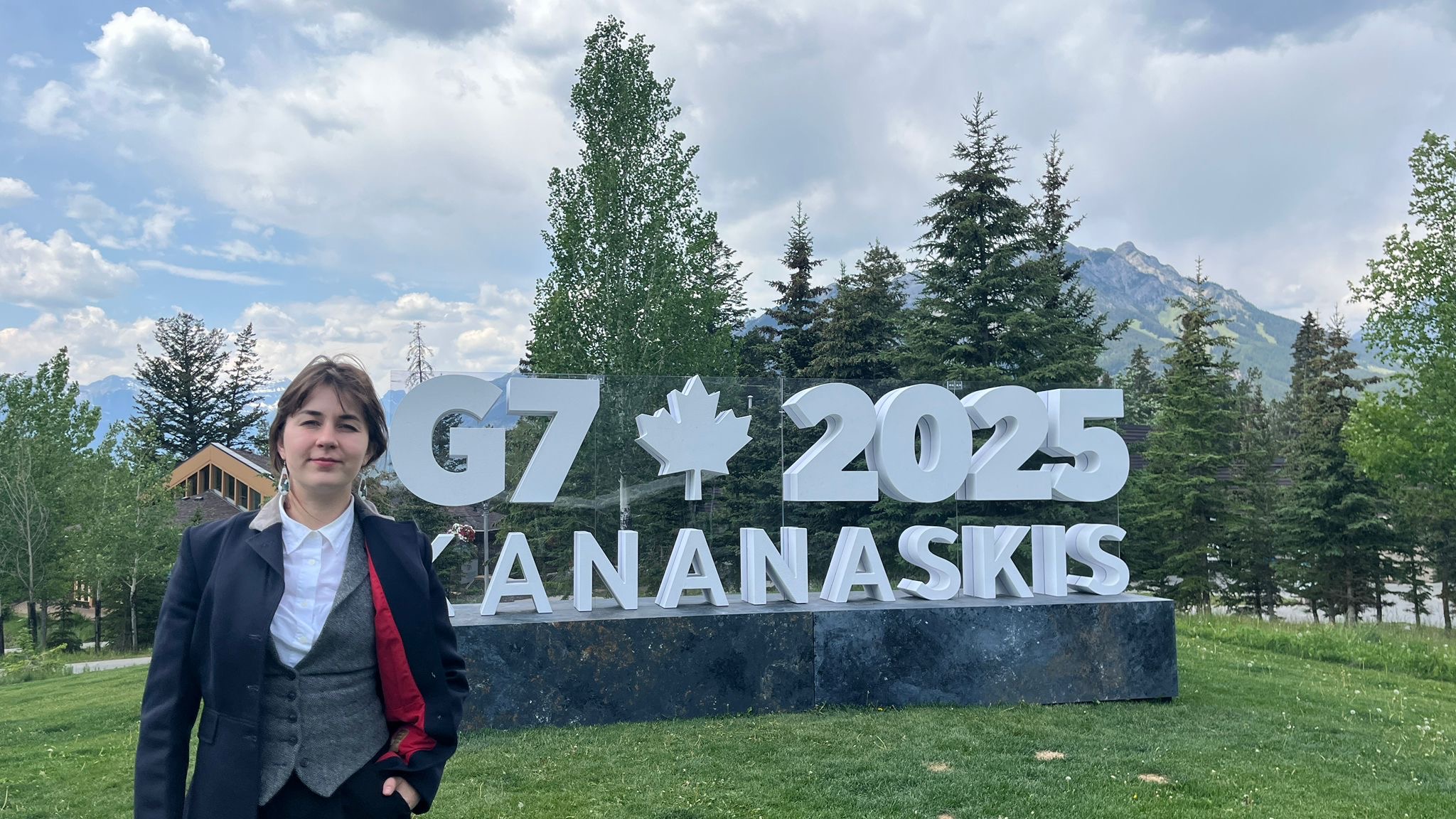
To conclude, I strongly suspect that this will be the last G7/G20 Summit I ever attend. I am thoroughly disenchanted with international governance and the ability of civil society to have any impact whatsoever on the decisions made by world leaders at these events. The G7 parties while the world literally burns around them.
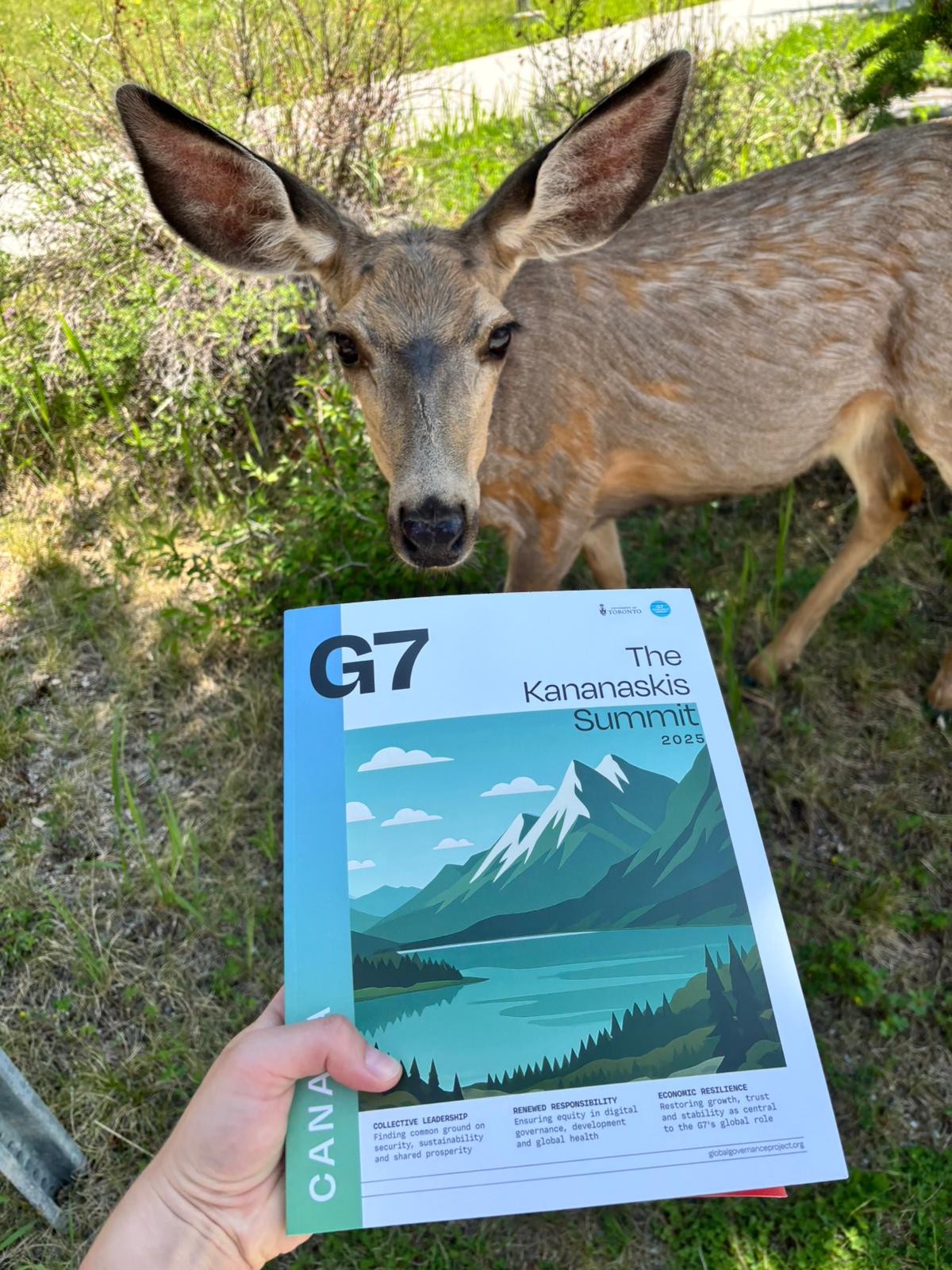 Might as well give this to the deer, it has the same impact.
Might as well give this to the deer, it has the same impact.
Algorithmic Governance Foundation
Since I’m going to be in Oxford for the next while as a DPhil student, I’ve decided to formalise the projects I’ve been running over the past two years into a group which I am calling the Algorithmic Governance Foundation (AGF). The goal is to work alongside public-serving organisations to deploy automations and machine learning models that improve public-sector decision-making, or algorithmic governance.
 Made a ‘lil website to more easily solicit projects and student volunteers.
Made a ‘lil website to more easily solicit projects and student volunteers.
The three projects I’ve decided to run this summer are:
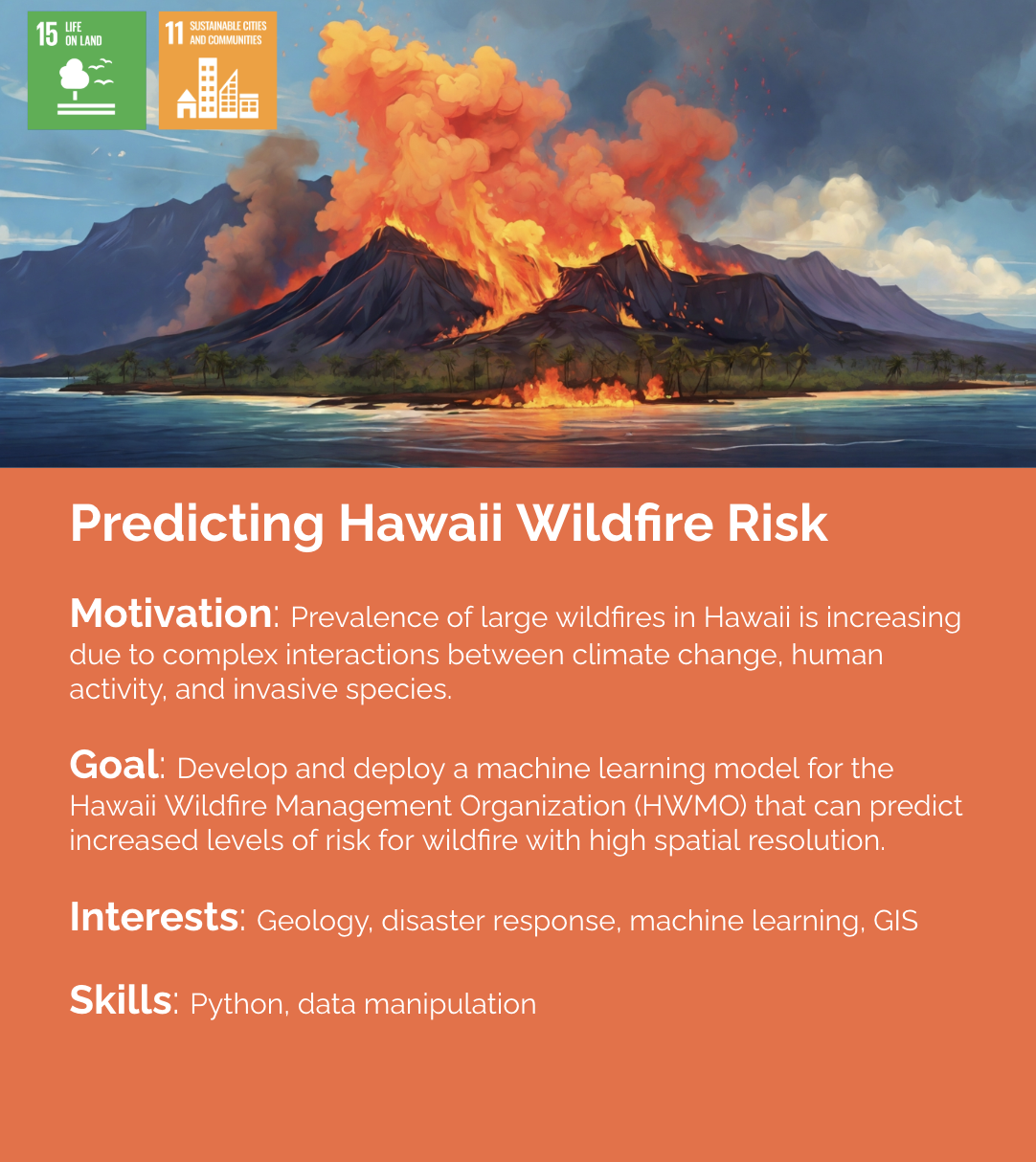
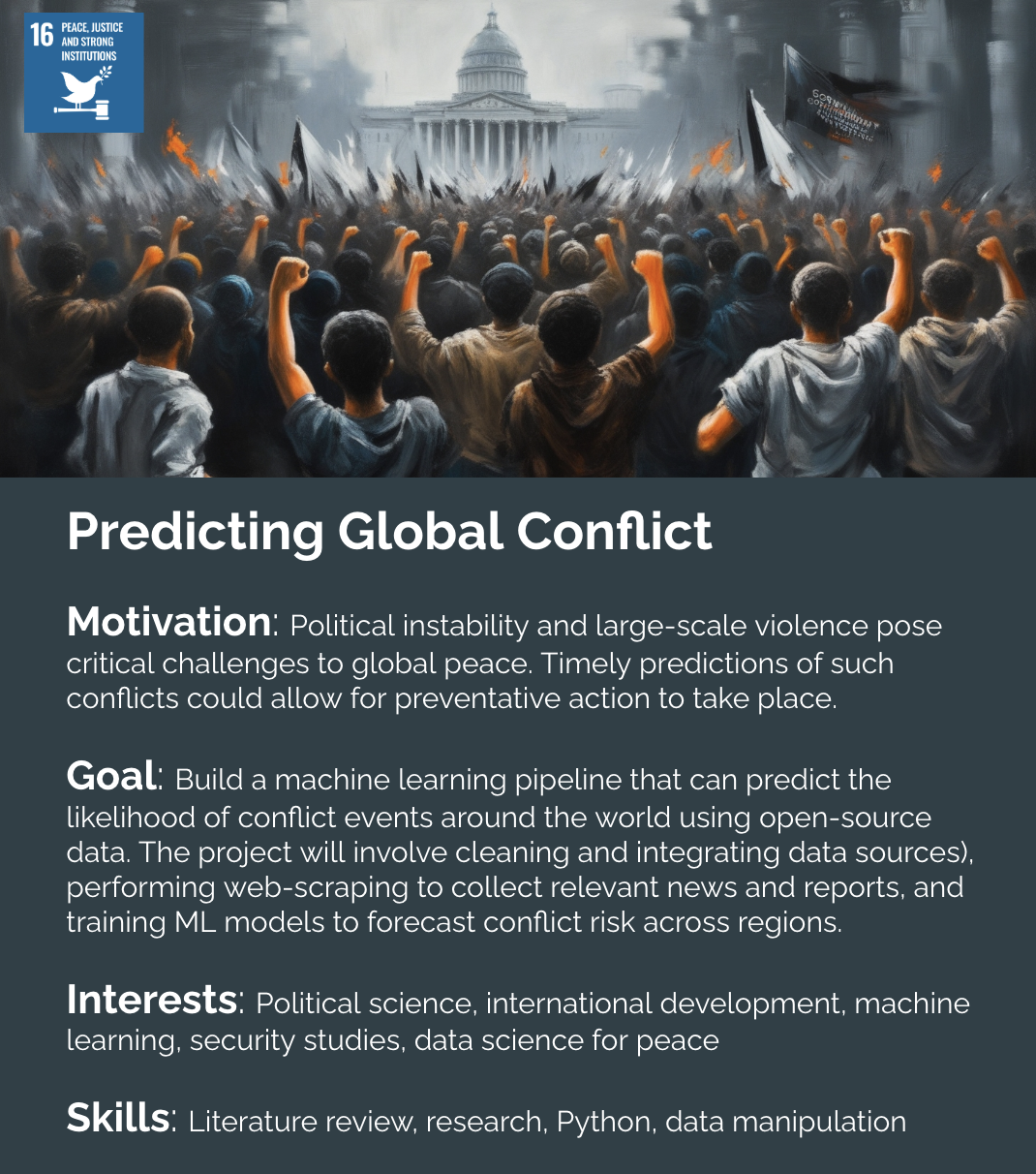
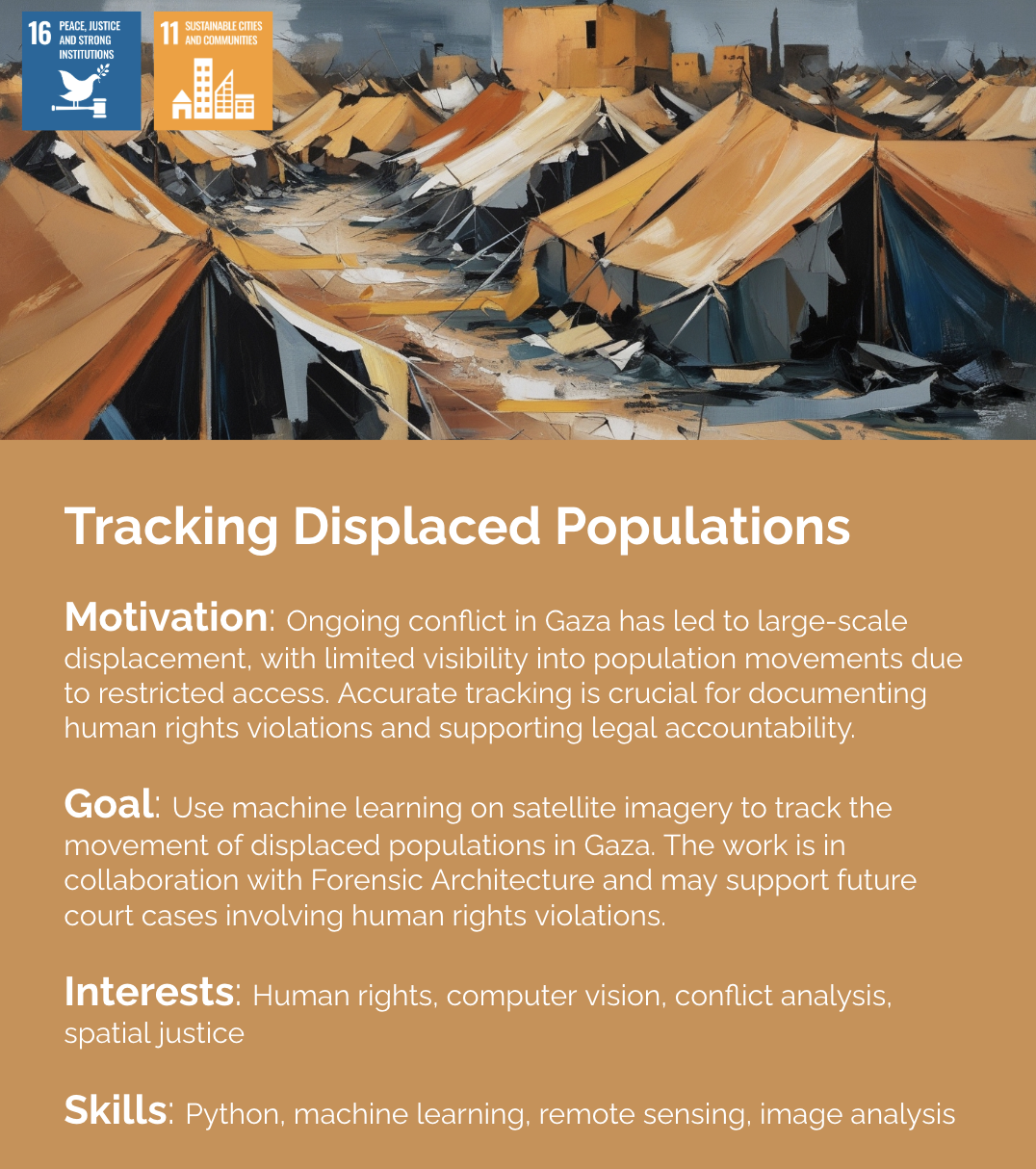
I spent the end of the month running interviews with interested applications from around the world. Now that I have an office, I will work on getting funding to bring 2-3 of them to Oxford at the end of the summer to wrap up the project work (for the student volunteers from the Global South, it also seems like that might be a good career boost).
Detecting Displacement in the Gaza Strip Using Computer Vision
One of the projects I am most excited about is with Forensic Architecture. While all the projects I run have industry partners, this is the only one where the client specifically asked for a ML project (I originally just asked to volunteer doing manual open source mapping for their Cartography of Genocide project, which is tedious but potentially one of the most impactful ways to use OSINT techniques for social good).
When we spoke, they seemed very excited about getting a ML pipeline to help analysts in detecting tents in the Gaza Strip, with the idea that this data can better inform how bombing campaigns have affected and interacted with (aka by directly bombing) displaced populations. The issue is that there are hundreds of thousands of tents all over the Strip, and there is not enough labour available on the Forensic Architecture team to keep up and track at the temporal resolution they want. I’ve volunteered to both recruit a bunch of student volunteers to do the open source mapping and to build the ML pipeline for tent identification using their internal platform.
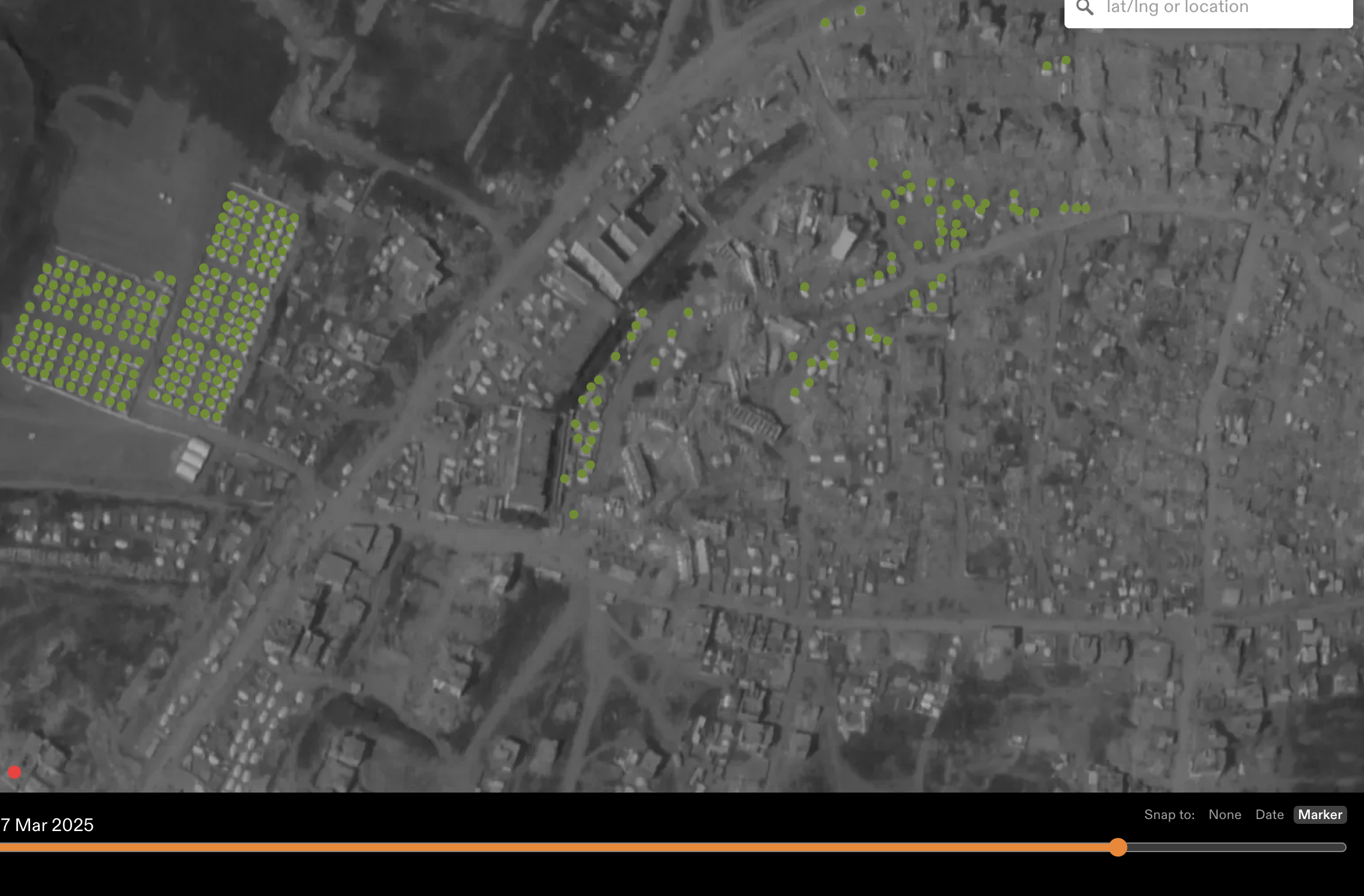 We must detect these tents (and more tediously, get the data for the CNN by arduously scraping the internal Forensic Architecture platform for the image data, since the do not own the satellite raster images).
We must detect these tents (and more tediously, get the data for the CNN by arduously scraping the internal Forensic Architecture platform for the image data, since the do not own the satellite raster images).
I’ve managed to convince one of my friends (who is not an automated external defibrillator) to take the lead on the web scraping portion. I was worried this part would take a while, but he had a functional web scraper built in Selenium within hours, which was genuinely impressive. I’m looking forward to seeing what we can accomplish.
Living Stuff
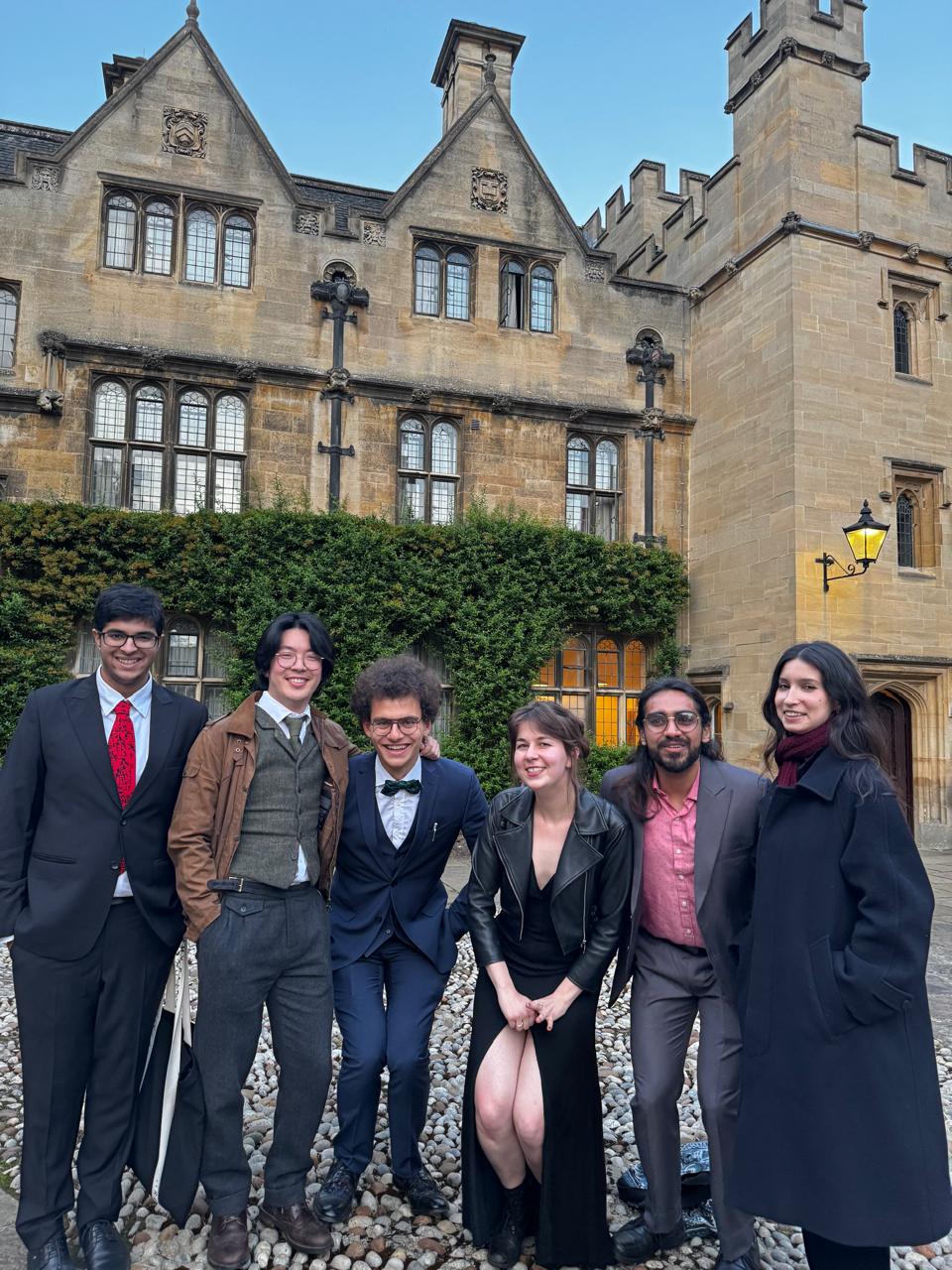 Dinner at Merton with flatmates and friends.
Dinner at Merton with flatmates and friends.
Summer is finally here in England, and it is hot (good thing world leaders don’t care about climate change). To cool off, me and my flatmates have been swimming in the local industrial waste pond (how far my standards have fallen).
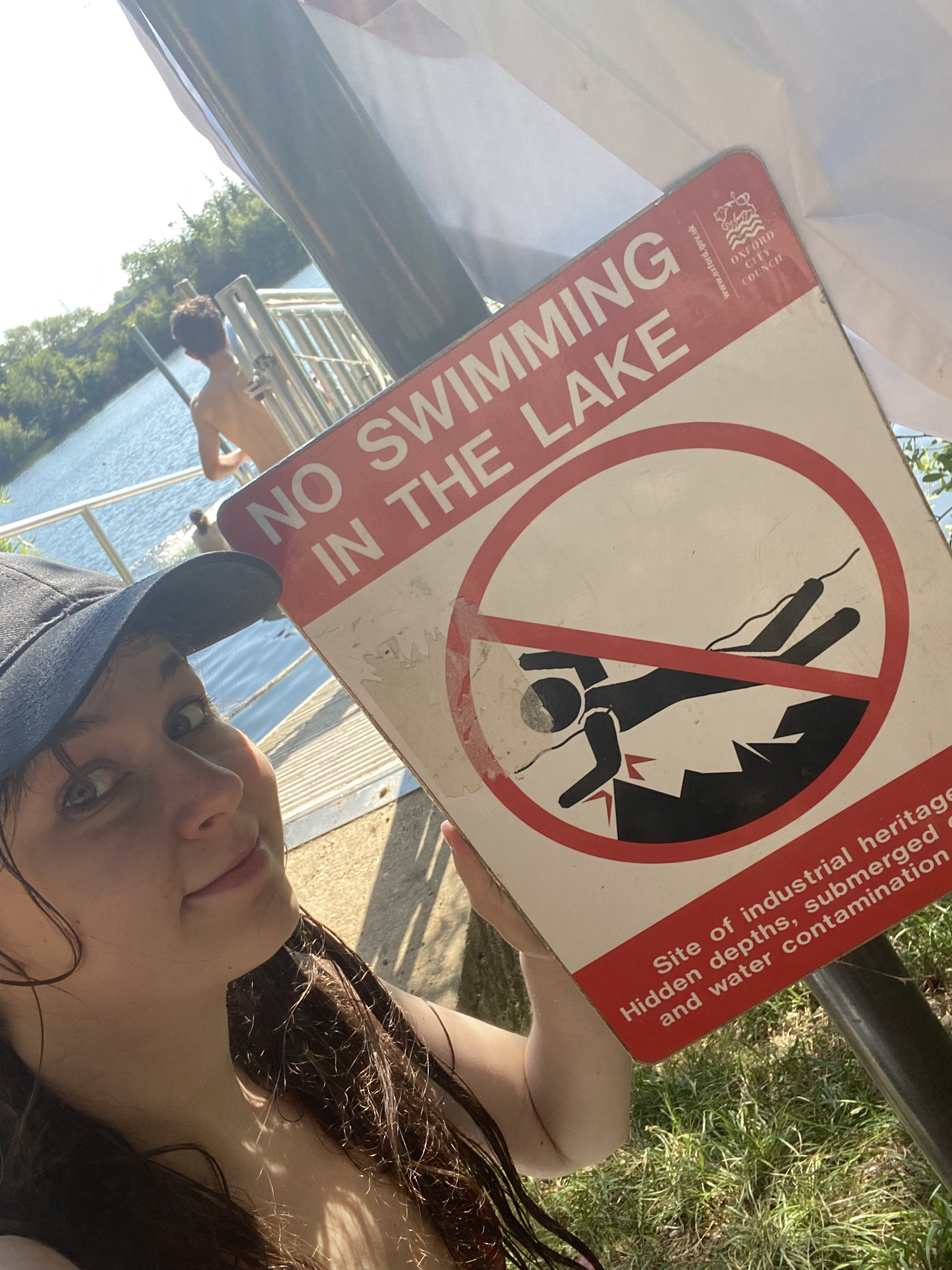 The cleanest body of water in Oxford, thanks Thatcher.
The cleanest body of water in Oxford, thanks Thatcher.
Also did some more art, both water colours and life drawings.
 Life drawings are potentially getting better, just in time for the free lessons to end for the summer.
Life drawings are potentially getting better, just in time for the free lessons to end for the summer.
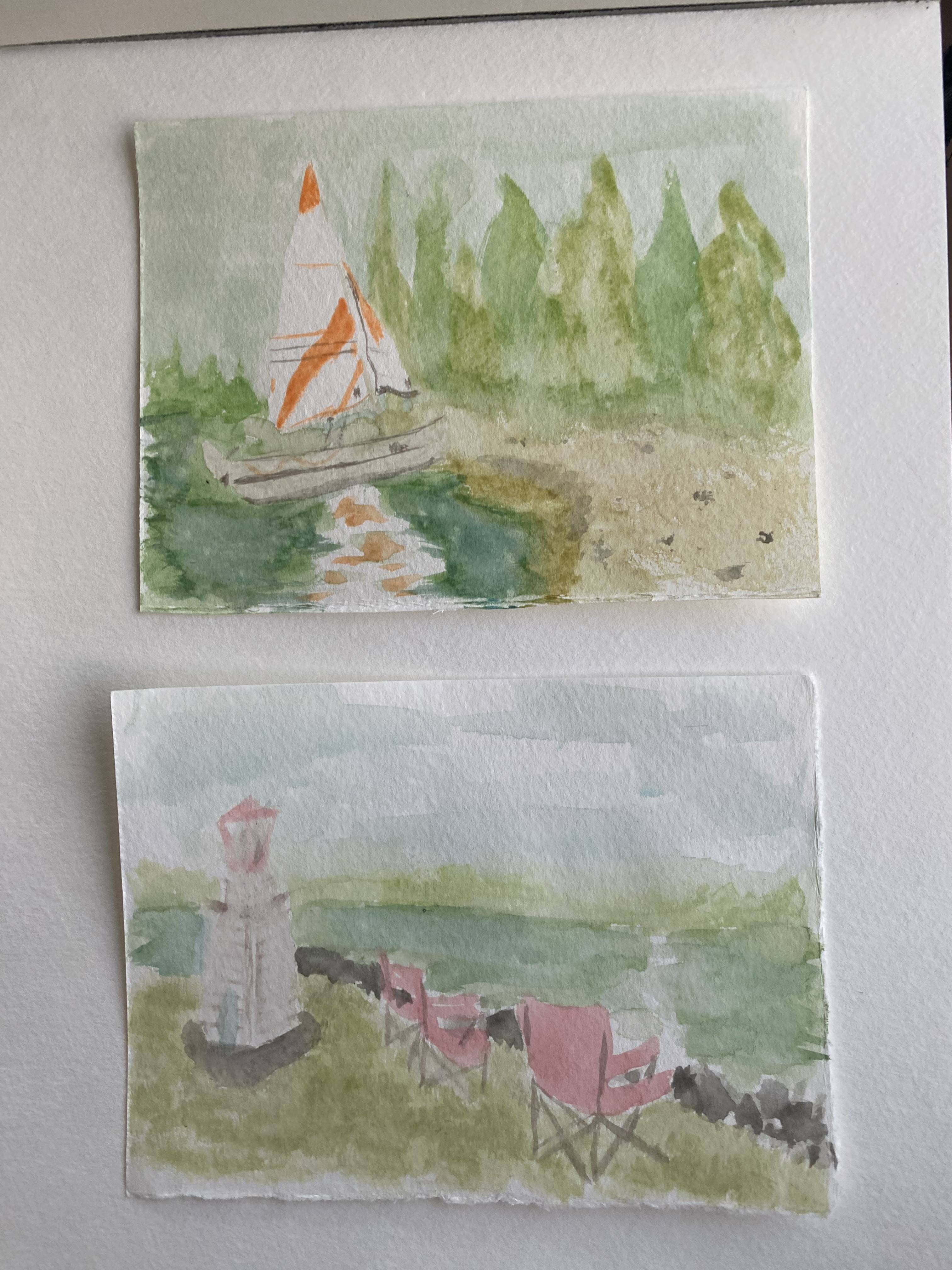 Some quick sketches done using abysmal quality paint while visiting my parents.
Some quick sketches done using abysmal quality paint while visiting my parents.
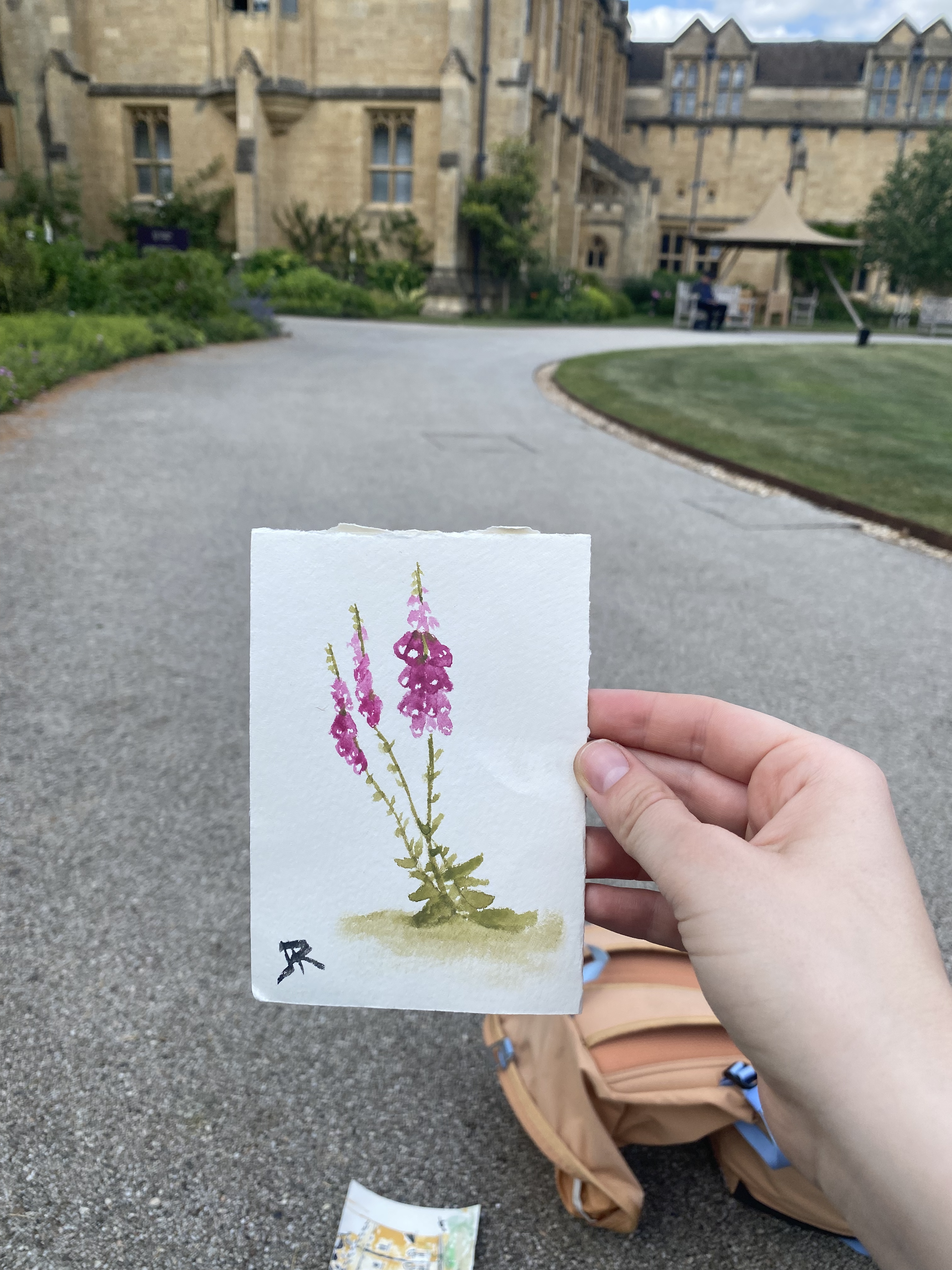 Cute foxglove sketch outside Mansfield.
Cute foxglove sketch outside Mansfield.
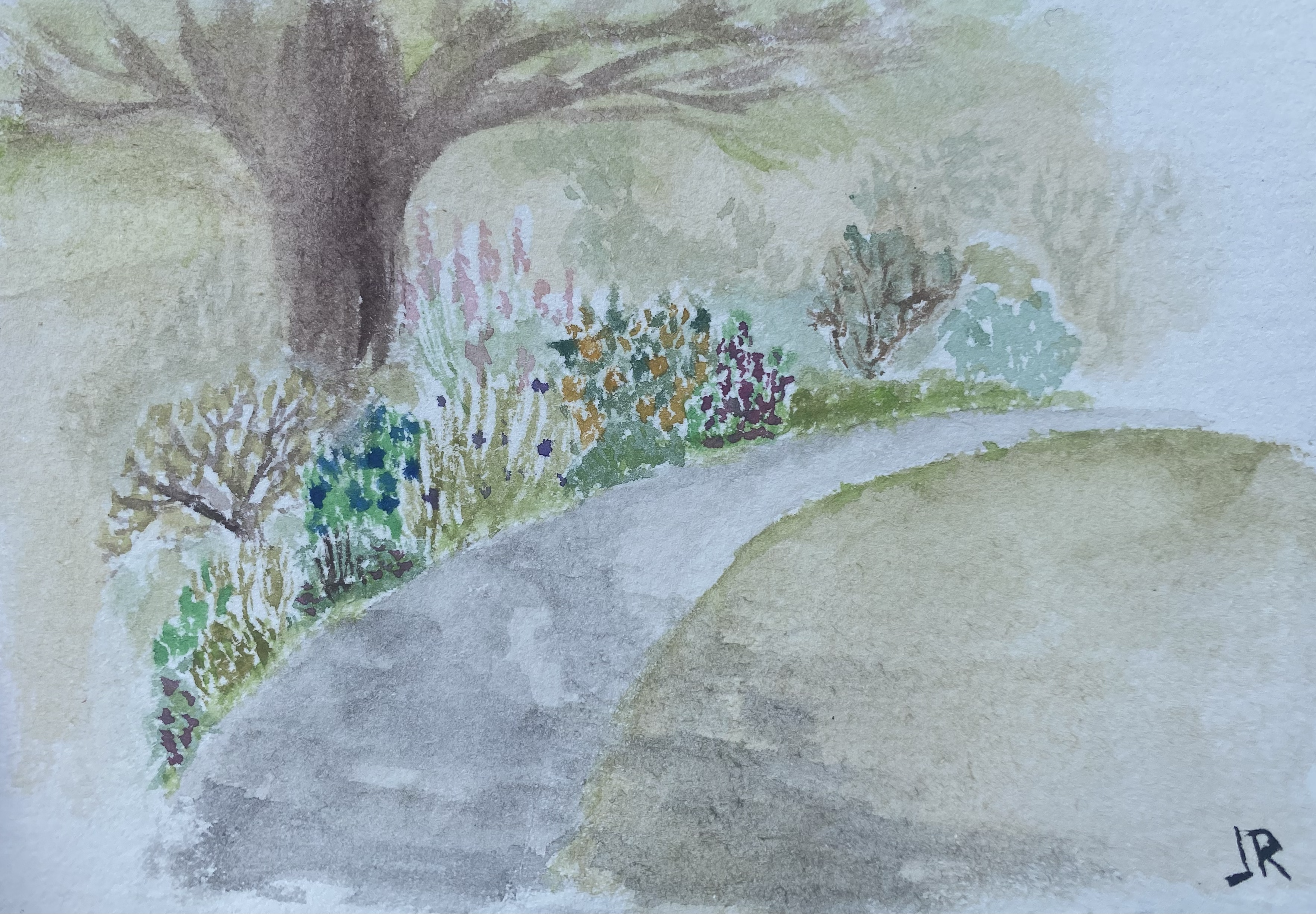 Rather drab but detailed garden also outside Mansfield.
Rather drab but detailed garden also outside Mansfield.
This blog is now no longer atrociously out of date, and I intend to keep it that way.
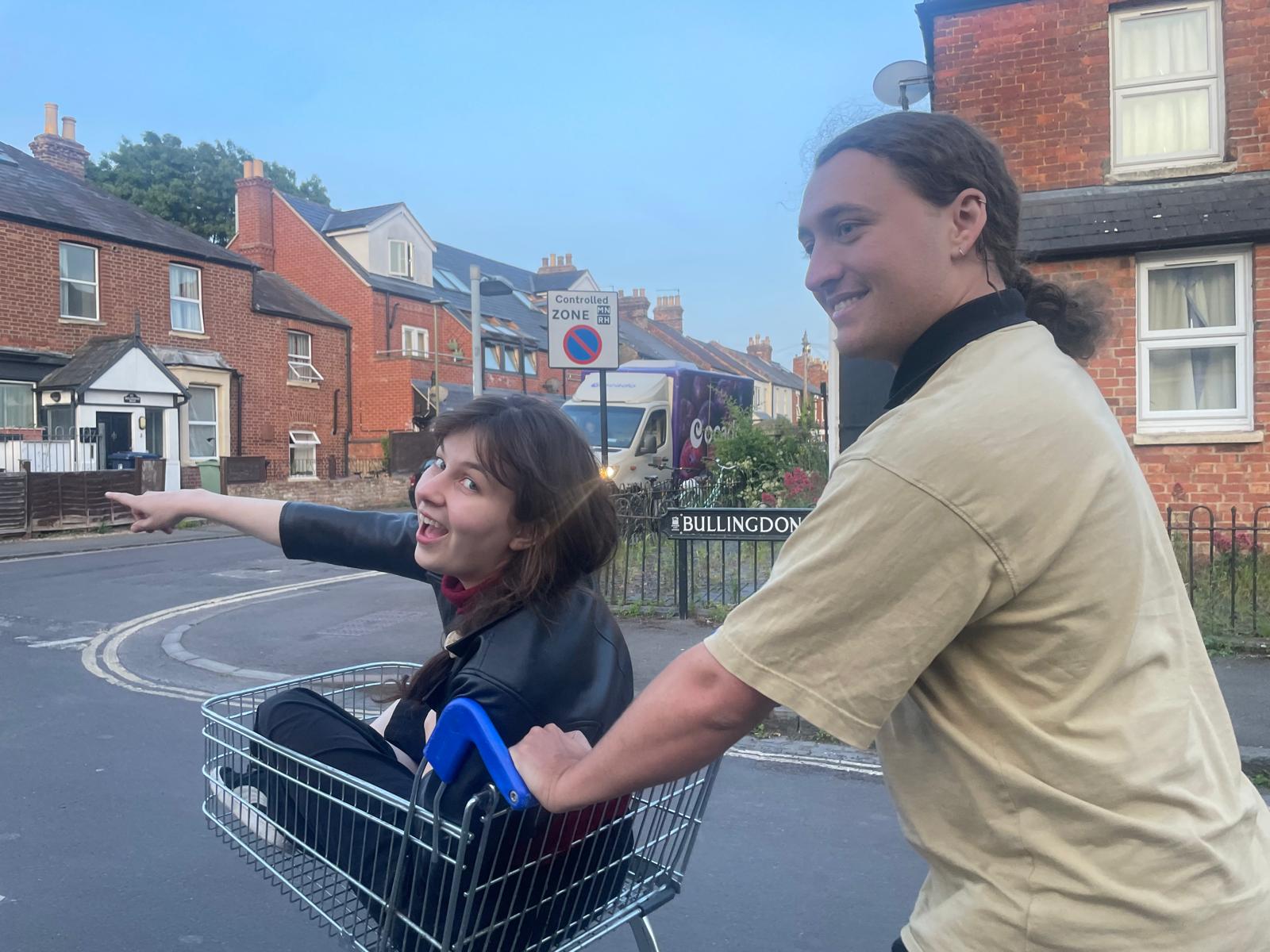 Whee.
Whee.